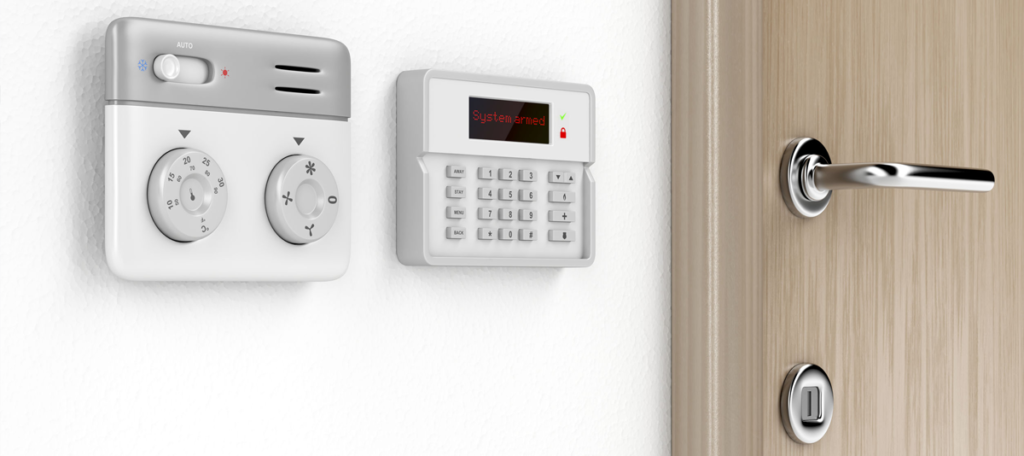Burglar alarms play a pivotal role in home security, providing a critical layer of protection against unauthorized entry and potential threats. Their significance has grown over the years as technology advances, offering homeowners peace of mind and a proactive means to safeguard their property and loved ones.
We will delve into the various aspects of burglar alarms, including their technological advancements, psychological impacts on crime prevention, integration with modern security systems, and their future in the evolving landscape of home security.
Various aspects of burglar alarms
- Technological Advancements in Burglar Alarms
Modern burglar alarms have benefited immensely from technological advancements, particularly in electronics and telecommunications. Today’s systems have sophisticated sensors that can detect motion, heat, sound, and even environmental changes.
These sensors are often interconnected and communicate wirelessly, allowing seamless integration with other security devices, such as cameras and smart home systems. Additionally, internet connectivity has enabled real-time monitoring and alerts, providing homeowners with instant notifications of suspicious activity. This connectivity also allows for remote control and management of the alarm system, enhancing its convenience and effectiveness.

- Psychological Impact on Crime Prevention
The presence of a burglar alarm can have a significant psychological impact on potential intruders. Visible components of the system, such as cameras, sensors, and alarm boxes, act as powerful deterrents. The mere knowledge that an alarm system protects a property can discourage criminals from attempting a break-in. Studies have shown that burglars are less likely to target homes with visible security systems.
This deterrent effect is crucial in preventing crimes before they occur, contributing to the overall safety and security of neighborhoods. Furthermore, the audible alarm can startle intruders and prompt them to flee, reducing the risk of theft or damage.
- Integration with Modern Security Systems
The integration of burglar alarms with modern security systems has revolutionized home protection. These systems are part of a broader network of interconnected devices that provide comprehensive security coverage. For instance, smart home technology allows for integrating burglar alarms with lighting systems, cameras, and door locks.
This integration enables automated responses to security breaches, such as turning on lights, recording video, and locking doors, all triggered by the alarm. Additionally, many systems offer compatibility with voice-activated assistants, allowing homeowners to control their security setup with simple voice commands. This level of integration enhances security and adds a layer of convenience and user-friendliness.
- The Role of Monitoring Services
Professional monitoring services play a crucial role in the effectiveness of burglar alarms. When an alarm is triggered, these services provide immediate response by contacting the homeowner and, if necessary, dispatching emergency personnel. This rapid response can be critical in preventing theft, apprehending intruders, and ensuring the safety of occupants.
Monitoring services also offer an added layer of protection by continuously overseeing the alarm system’s status, ensuring it is always functional, and promptly addressing any issues. The peace of mind offered by professional monitoring is invaluable, particularly for individuals who travel frequently or have multiple properties to protect.
- Challenges in Burglar Alarm Systems
Despite their numerous benefits, burglar alarms are not without challenges. One of the most common issues is false alarms, which various factors, including environmental conditions, pets, and user error, can cause. False alarms can lead to unnecessary anxiety, desensitization to actual threats, and potential fines from local authorities.
To mitigate this problem, modern systems incorporate advanced algorithms and sensor technologies to distinguish between genuine security breaches and harmless triggers. Another challenge is the potential for system tampering or hacking, especially with the rise of interconnected smart devices. Ensuring robust cybersecurity measures is essential to protect against these risks and maintain the integrity of the alarm system.

- The Future of Burglar Alarms
The future of burglar alarms lies in further technological innovation and integration. Advances in artificial intelligence (AI) and machine learning are poised to enhance these systems’ capabilities significantly. AI can improve threat detection accuracy by learning from patterns and more effectively distinguishing between normal and suspicious activities.
Additionally, the continued growth of the Internet of Things (IoT) will enable even greater connectivity and automation, making burglar alarms an integral part of smart home ecosystems. Future systems may also incorporate biometric authentication, such as facial recognition, to enhance security further. As technology evolves, burglar alarms will become more intelligent, efficient, and user-friendly, offering unprecedented protection and convenience.
Burglar alarms have evolved from simple mechanical devices to sophisticated electronic systems that play a crucial role in modern home security. Their ability to deter crime, detect intrusions, and integrate with other security and smart home technologies makes them indispensable for protecting property and ensuring the safety of occupants.
Despite challenges like false alarms and cybersecurity risks, continuous technological advancements promise to enhance their effectiveness and reliability. As we look to the future, the ongoing development of AI, IoT, and other innovations will further solidify the importance of burglar alarms in safeguarding our homes and communities.

